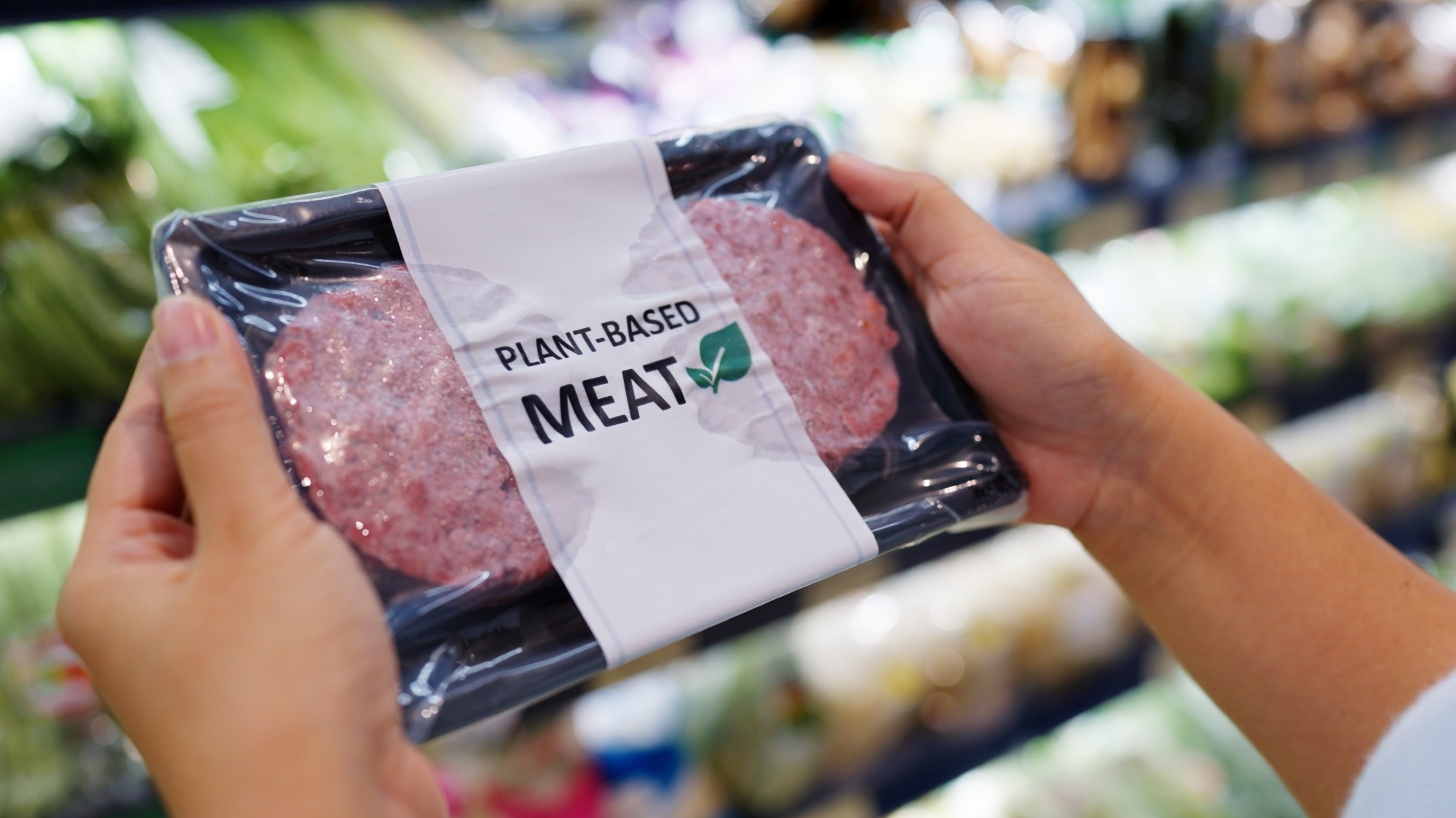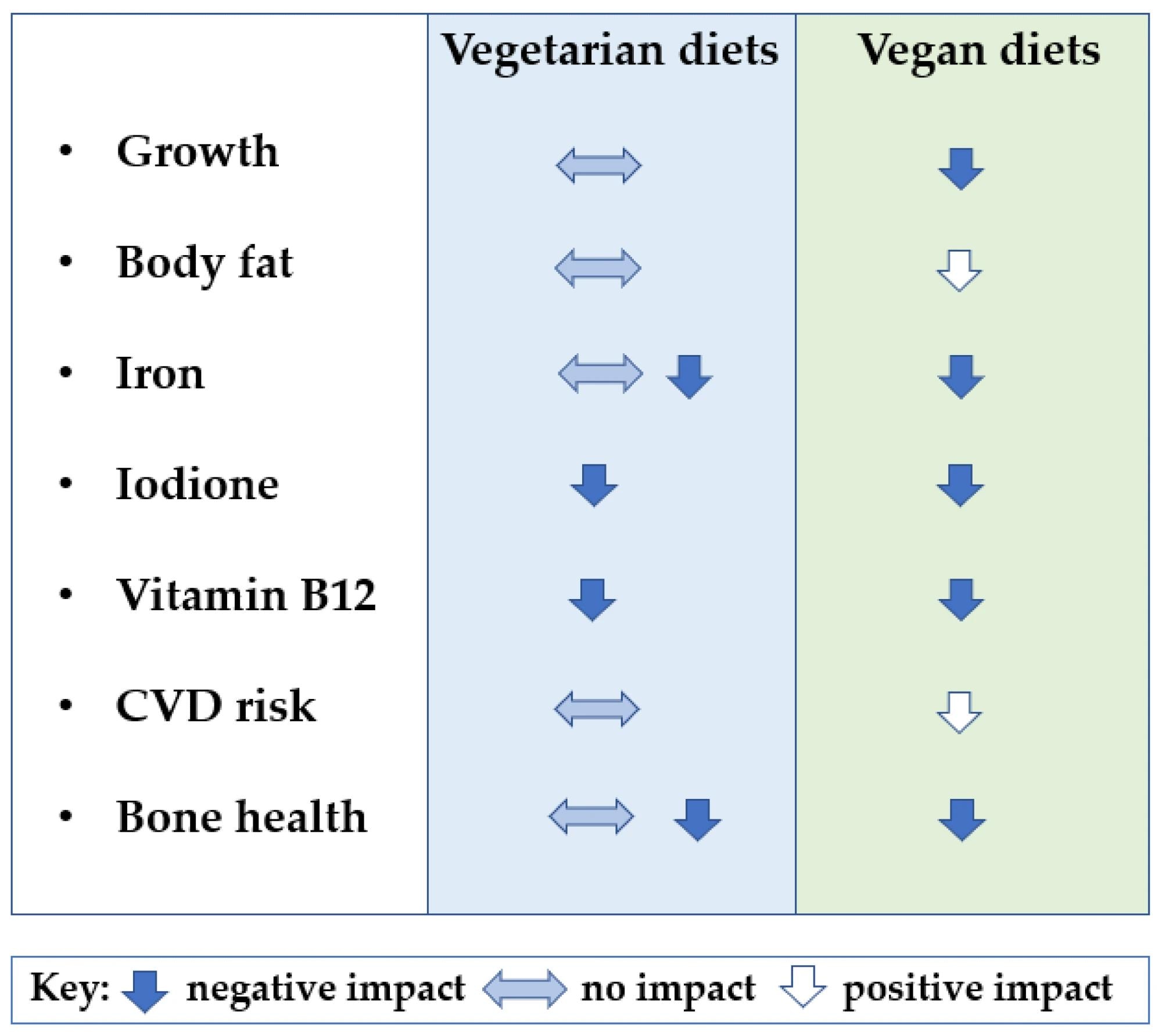In a recent systematic review published in the journal Nutrients, researchers from the United Kingdom (UK) examined the current evidence on the increasing consumption of plant-based diets (vegan and vegetarian) in children in high-income settings while exploring their associations with children's health outcomes and providing a roadmap for practice.
 Study: Plant-Based Diets in Children: Secular Trends, Health Outcomes, and a Roadmap for Urgent Practice Recommendations and Research—A Systematic Review. Image Credit: Chay_Tee / Shutterstock
Study: Plant-Based Diets in Children: Secular Trends, Health Outcomes, and a Roadmap for Urgent Practice Recommendations and Research—A Systematic Review. Image Credit: Chay_Tee / Shutterstock
Background
The global shift towards plant-based diets, driven by environmental and health concerns, poses implications for children's health. Increasing adoption of plant-based diets, including vegan and vegetarian, is noted in high-income countries. Limited data on children's health outcomes reveal potential risks, such as growth restriction and nutrient deficiencies, with contemporary plant-based alternatives being ultra-processed. Concerns remain regarding the impact of additives on the microbiome and preliminary associations with a risk of cardiovascular disease and cancer. Heterogeneous guidelines on plant-based diets for children reflect gaps in nutritional advice. Urgent research is needed to ensure the safety of these diets for children, aligning dietary recommendations globally. Therefore, the researchers in the present review aimed to analyze the trends in plant-based diets among children, assess health outcomes of vegetarian and vegan diets, evaluate the current heterogeneity in dietary advice, and propose research questions to establish safe guidelines for implementing these diets in children.
Secular trends in plant-based diets in children
The prevalence of plant-based diets, including veganism, has significantly increased in high-income countries. In the last decade, Germany saw a 15-fold rise in the number of vegans, and in the UK, 4.5% of the population identified as vegetarian or vegan in 2019, marking a 50% increase. Similar trends are observed in Western Europe, the United States of America (US), and Australia, where up to half of the population is found to reduce animal product intake. Children are also embracing these dietary patterns, with 8% of British children identifying as vegan and 13% as vegetarian, according to a 2021 survey. The surge in plant-based food sales worldwide further reflects this growing trend.
Associations of plant-based diets with child health outcomes (1980s–2013)
Previous studies, often cross-sectional with small samples, showed that children on meat-free diets tended to have comparable or slightly lower anthropometric measures, altered bone metabolism, and varying micronutrient status. However, the evidence remains insufficient to draw firm conclusions on health outcomes. There is also a lack of studies evaluating the serum micronutrient status in vegan children.
Associations of plant-based diets with child health outcomes (2013–2023)
Although vegetarian children's anthropometric markers align with or are found to be slightly below the reference group, vegan children often display lower weight, height, and fat mass than omnivores, with a slightly increased risk of being stunted and wasted, affecting a limited percentage. Data on vegetarian children suggest a trend of lower bone mineral content and density. For vegan children, lower values persist even after adjusting for bone and body size, accompanied by altered bone metabolism markers.
Both vegetarian and vegan children exhibit signs of vitamin B12 deficiency without supplementation, with approximately 30% not receiving supplementation. Additionally, they show lower iron stores, increased risk of vitamin D deficiency, and potentially inadequate iodine intake. Vegans may also have lower levels of certain nutrients, particularly fat-soluble vitamins. Children on vegan diets exhibit a more favorable lipid profile compared to omnivores, while evidence for vegetarian diets is inconsistent and outcome-specific. The available evidence is limited and of fair to poor quality but reveals consistent associations of plant-based diets with health outcomes in children.
 Summary of impacts of vegetarian and vegan diets on a range of children’s health outcomes
Summary of impacts of vegetarian and vegan diets on a range of children’s health outcomes
Conflicting position statements of medical and nutritional institutions around the world
International guidelines on vegetarian and vegan diets for children vary, with the US and the UK endorsing well-planned vegan diets. On the other hand, many European countries express caution, emphasizing risks and the need for constant medical supervision. Discrepancies in these guidelines suggest the potential influence of plant-based diets beyond health concerns, potentially linked to environmental or animal welfare considerations.
Roadmap for future research
Key research questions remain regarding the varying health impacts of plant-based diets at different developmental stages, the effects of bone-supporting nutrient supplementation, the consequences of emerging ultra-processed plant-based foods, and potential long-term health implications. Urgent practice recommendations providing health professionals with fundamental training, introducing tailored dietary guidelines accommodating regional habits, and establishing clear regulations for nutritional transparency and suitability of ultra-processed plant-based alternatives for children are needed.
Conclusion
In conclusion, children adopting plant-based diets may experience cardiometabolic benefits but face potential risks of nutritional deficiencies that may impact growth, bone health, and developmental outcomes. The heterogeneity in dietary advice reviewed in the study calls for harmonization, urging further research and immediate implementation of practice recommendations for the safe application of vegan and vegetarian diets in children on a global scale.
Journal reference:
- Plant-Based Diets in Children: Secular Trends, Health Outcomes, and a Roadmap for Urgent Practice Recommendations and Research—A Systematic Review. Desmond MA. Et al., Nutrients, 16(5):723 (2024), DOI: 10.3390/nu16050723, https://www.mdpi.com/2072-6643/16/5/723